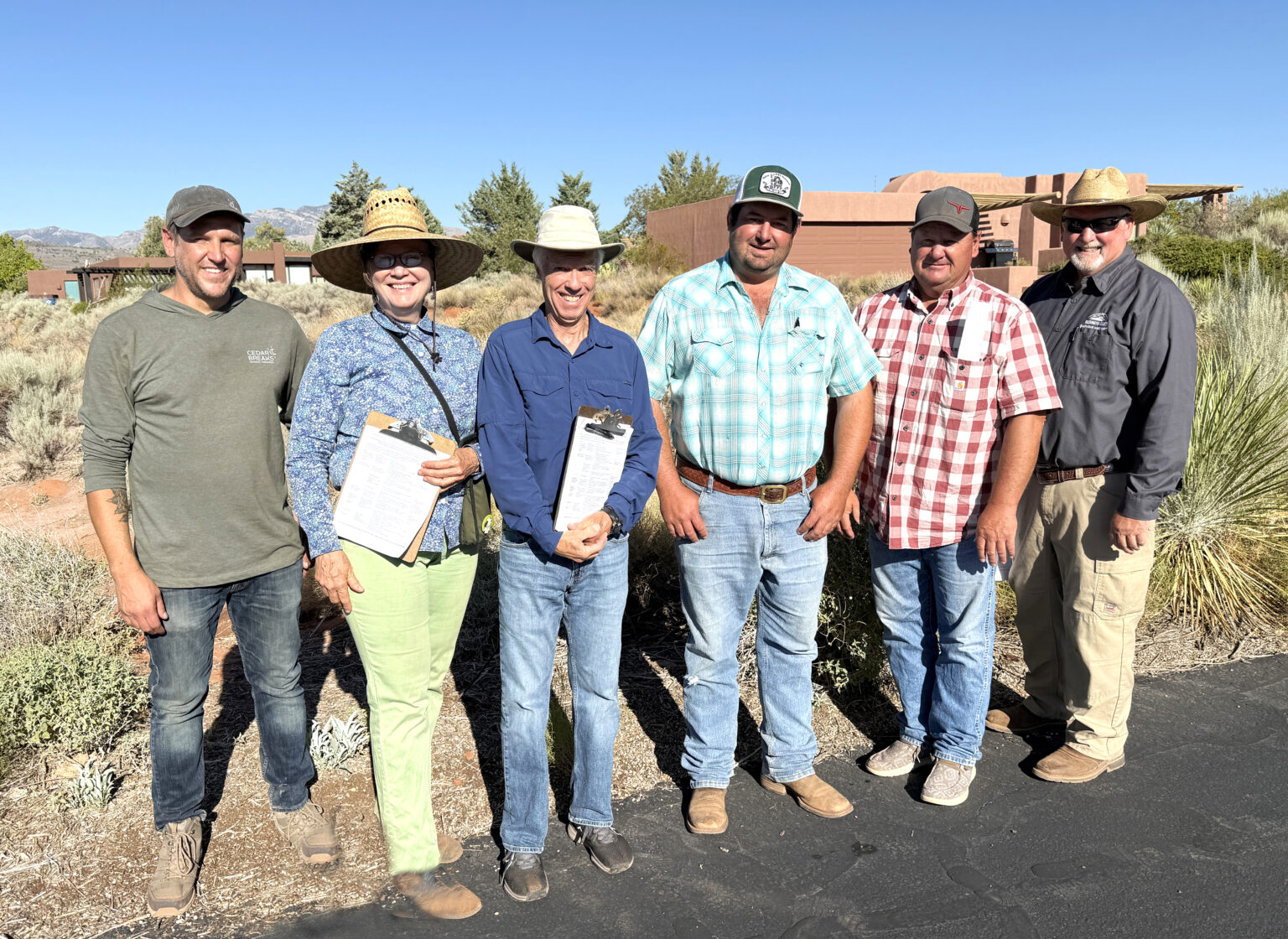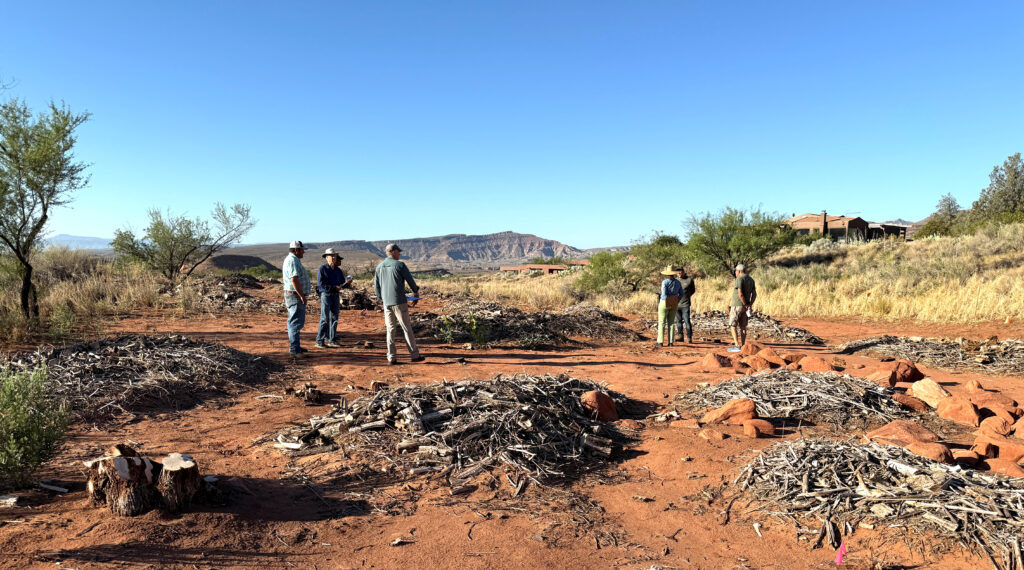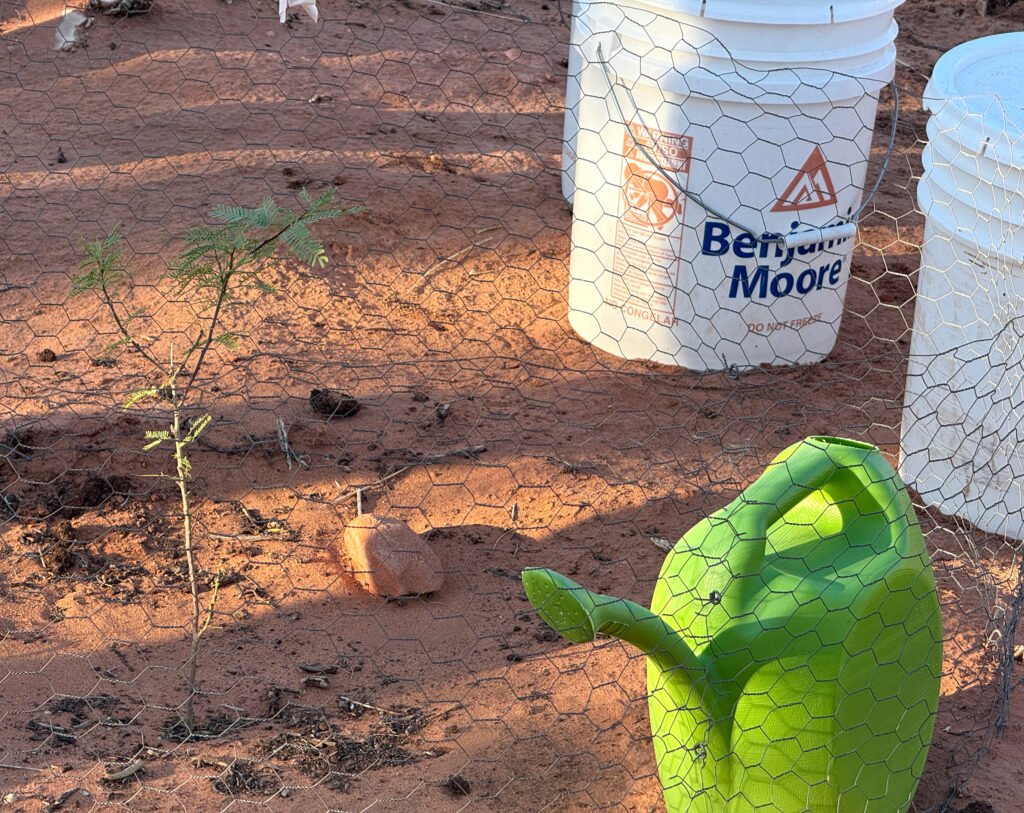
Networking for Strength and Success
August 2025
Sharing experiences and expertise with others who work in disciplines and/or on projects similar to yours can bring positive results. Beyond camaraderie and learning about better ways of doing things, like-minded volunteers also find renewed commitment as they meet with others who share both their passions and their concerns.
Such was one of several outcomes of a “walk and talk” in early July when board members of the Desert Preservation Initiative (DPI) met with local environmental and conservation experts. On hand for the meeting organized by DPI volunteer Shaunna Goldbery, a conservation botanist and science/STEAM educator, were Tyce Palmer, Utah Department of Agriculture and Food (UDAF), Zone 5 Conservation Director; Jake Benson, conservation planner with UDFA and the Natural Resources Conservation Service; Brad Winder, Washington County Department of Noxious Weeds Supervisor, and Chris Corville, Best Friends Animal Society, Kanab.
During the early morning visit to the Wisteria Way wash project site off of Cactus Gulch in the City of Ivins, the group discussed soil management and restoration efforts, a well as the possibility of drone seeding, the use of EDDMapS to track invasive species and apply for grant funding, and thoughts on tracking birds in the area.
A primary lesson—one embraced by all—was the need to revamp how DPI leaves wood debris on site following tamarisk removal. Rather than leaving the debris in a pile, it is more effective to spread the debris around “to add nutrients to the soil, to keep soil from blowing away and to give shelter for seeds to take root,” notes DPI board member Sara Dupre.
“Bare soil is a dead soil that is subject to increased wind erosion and water erosion,” explains Jake Benson. “The sandy soils you have there have very little organic matter to help protect and promote plant growth and water holding capacity,” he says, “the bare soil is so hot in summer it literally cooks the seeds. If you leave the soil bare, red broom and cheat grass will come in.” Basically, as a familiar saying goes, “Nature abhors a vacuum, if you don’t replace it with something you want, nature will replace it with something you don’t want.”
Tyce Palmer noted that his agency and the Dixie Conservation District can help apply for and administer grants and that he also works with the American Conservation Experience and writes grants for them. Grant funding could help DPI pay for additional labor, herbicide, and seed.
Brad Winder, who has previously helped DPI by teaching a workshop on herbicide use, found the gathering a win/win. Tyce Palmer noted that the work of DPI is “a great community effort. I like how your committee is organized and has good monitoring going on.”
With a great many new ideas to pursue, Shaunna Goldberry summed up the day, “It’s wonderful to revisit and review all of your labor and dedication to conservation! I continue to be impressed.”

